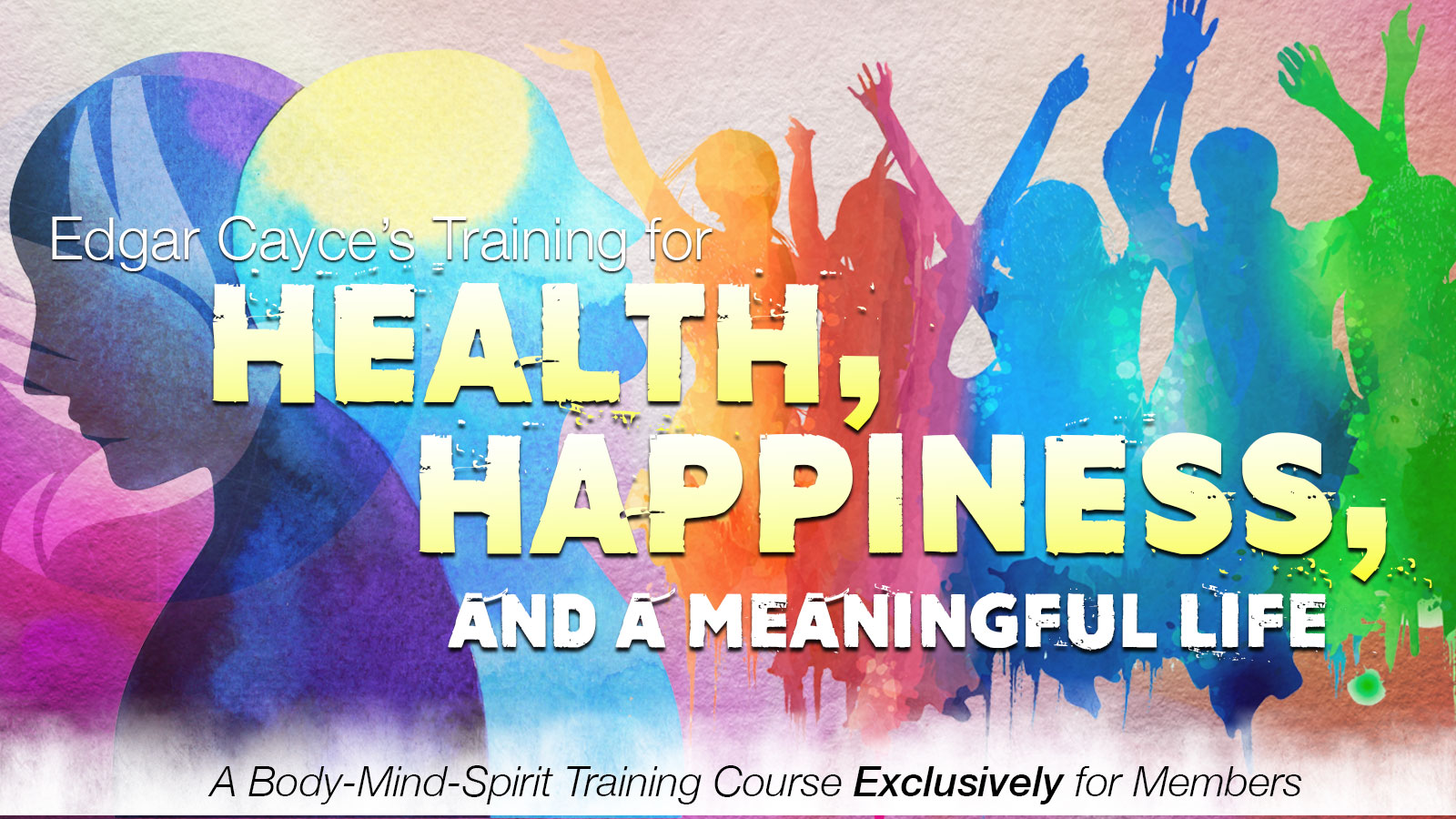The universe is an expression of magnificent organization. Heavenly bodies move about in orderly obedience to the hidden laws of nature. On planet Earth, the attunement of life to the cycle of seasons is a further testament to the intricate harmony of natural processes.
At the personal level of the body’s physiology, the moment-to-moment coordination of numerous organ systems that maintain life and health attest to the biology of cooperation in flesh and blood, muscle, and bone. Cooperative human social interaction has made possible tremendous gains in science and technology, medicine, and art. And yet, sometimes cooperation breaks down. Illness results from physiological systems that are out of balance. Ecological disasters indicate an imbalance of the forces of nature.
From the stand point of the Edgar Cayce material, the lack of cooperation in the human condition is a matter of rebelliousness at the soul level. We will be dealing with this problem from multiple perspectives as we move through the lessons offered in the Enlightenment Series, but for now, at the beginning of this spiritual quest, it boils down to this: How we treat others, and how we treat the world, is how we treat God.

Finding God through Cooperation
It is significant that the first lesson provided by Edgar Cayce to the initial study group seeking to bring truth and light into the world focuses on cooperation. There is no expansive theological treatise or doctrine, no attempt at proving the existence of God. There is no statement of belief or commitment to a creed or ideology. Just cooperation.
A dictionary definition of cooperation will usually describe some type of interaction or association for the common good. TRUE cooperation, however, is not just getting along with others for the sake of avoiding conflict. It is not simply being tolerant of differences in others for political correctness, or working together for a common goal. After all, a gang of criminals can work together quite effectively while robbing a bank. Powerful corporations can collaborate harmoniously in price-fixing. Even well-intentioned attempts at cooperation can fall short of ideal outcomes due to human shortsightedness or failure to take into account all the relevant factors in any complex interaction. Thus, TRUE cooperation is based on a spiritual premise, and requires us to be open to the spiritual dimension in our interactions with others and our attunement to the divine within.
The Practice of Cooperation
Cooperation is a matter of practice—of putting into action simple spiritual principles. To be sure, attunement through prayer and meditation is essential for the highest level of cooperation. Attuning to the spirit of the Universal Consciousness increases unity and harmony in all of our dealings—at home, at work, at play—wherever we are and in whatever activity we are engaged.
And yet, for anyone beginning their spiritual journey, and especially for that individual who may have little or no conscious awareness of the presence of God, the regular practice of prayer and meditation can be a challenge. In this case, mindfulness as a form of meditation may be a useful tool. As you take stock of your thoughts, feelings, and actions during interactions with others, is there a sense of cooperation? Or do you find yourself arguing, confronting, or being resentful of others? Do you speak unkindly or even have unkind thoughts toward others? If so, this is where your search for enlightenment will begin.
Cooperation provides a practical first step to developing an awareness of the divine at work in the world. Most often, it’s the little things that provide the best opportunity for cooperation—a kind word, a little patience and long-suffering, a small act of generosity. In the Bible and in the Cayce readings, these little things are called “fruits of the spirit,” and are the hallmark of cooperation. A cooperative attitude looks for the common ground that unites, rather than differences that divide.
As a first step in the conscious process of spiritual awakening, cooperation means letting go of selfish desires, personal agendas, and egotistical motives—and becoming a channel through which spirit can flow for the good of all.
Thus it is—in the midst of daily life—in the little acts of cooperation, that we find God—that we find enlightenment—if we are paying attention.
Excerpted from Jan-Mar 18 Venture Inward magazine.
A note about this article:
This blog article is part of our Enlightenment Series. Members can access the all of the available material, which also includes an online video and downloadable monthly practice, in the member-only section of our website at EdgarCayce.org/members.







